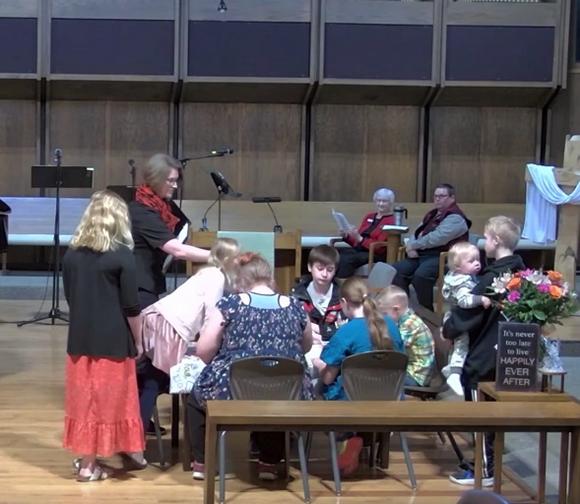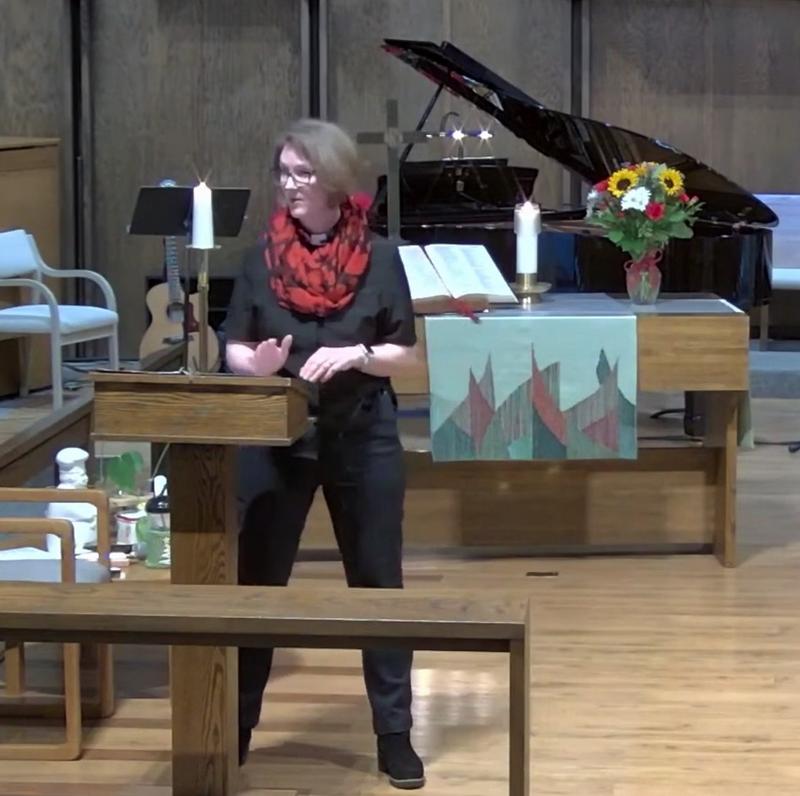|
Butterfly Hill Nature Preschool Give online! Ministerial Schedule! |
About UsWhoever you are, however you are, just as you are,you are welcome at Alexandria United Methodist Church
The People Called MethodistAlexandria United Methodist is part of the larger Minnesota Annual Conference. You can find some of the great work they are doing here. The United Methodists have a document called "Social Principles of the United Methodist Church".
The United Methodist Church has a long history of concern for social justice. Its members have often taken forthright positions on controversial issues involving Christian principles. Early Methodists expressed their opposition to the slave trade, to smuggling, and to the cruel treatment of prisoners. A social creed was adopted by The Methodist Episcopal Church (North) in 1908. Within the next decade similar statements were adopted by The Methodist Episcopal Church, South, and by The Methodist Protestant Church. The Evangelical United Brethren Church adopted a statement of social principles in 1946 at the time of the uniting of the United Brethren and The Evangelical Church. In 1972, four years after the uniting in 1968 of The Methodist Church and The Evangelical United Brethren Church, the General Conference of The United Methodist Church adopted a new statement of Social Principles, which was revised in 1976 (and by each successive General Conference). The Social Principles, while not to be considered church law,1 are a prayerful and thoughtful effort on the part of the General Conference to speak to the human issues in the contemporary world from a sound biblical and theological foundation as historically demonstrated in United Methodist traditions. They are a call to faithfulness and are intended to be instructive and persuasive in the best of the prophetic spirit. The Social Principles are a call to all members of The United Methodist Church to a prayerful, studied dialogue of faith and practice. (See ¶ 509.) People Called Methodist - our polity and doctrine
From the preface of the Book of Discipline, which begins with an Episcopal Address: “Grace and peace to you from God our Father and the Lord The Book of Discipline of The United Methodist Church is the product of over two hundred years of the General Conferences of the denominations that now form The United Methodist Church. The Discipline as the instrument for setting forth the laws, plan, polity, and process by which United Methodists govern themselves remains constant. Each General Conference amends, perfects, clarifies, and adds its own contribution to the Discipline. We do not see the Discipline as sacrosanct or infallible, but we do consider it a document suitable to our heritage and an expression of a future with hope. It is the most current statement of how United Methodists agree to live their lives together and “maintain the unity of the Spirit in the bond of peace.” It reflects our understanding of the church and articulates the mission of The United Methodist Church: To make disciples of Jesus Christ for the transformation of the world. The Discipline defines what is expected of its laity and clergy as they seek to be effective witnesses in the world as a part of the whole body of Christ. This book of covenant sets forth the theological grounding of The United Methodist Church in biblical faith and affirms that we go forward as “loyal heirs to all that [is] best in the Christian past.” It makes clear that The United Methodist Church is an inclusive society without regard to ethnic origin, economic condition, gender, age, or the disabilities of its constituents.
What is worship service like at Alexandria United Methodist Church?Children's programWe have a children's program that includes children's time every Sunday morning during worship, monthly Wednesday night inter-generational fun, Youth Jam (weekly bulletin), and a variety of special events and camp excursions (see Congregational Life)
|
|


